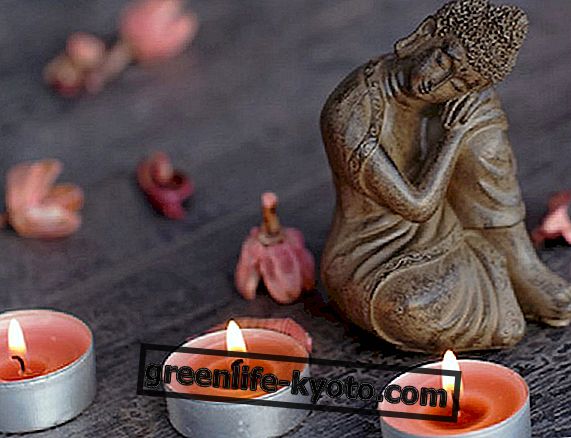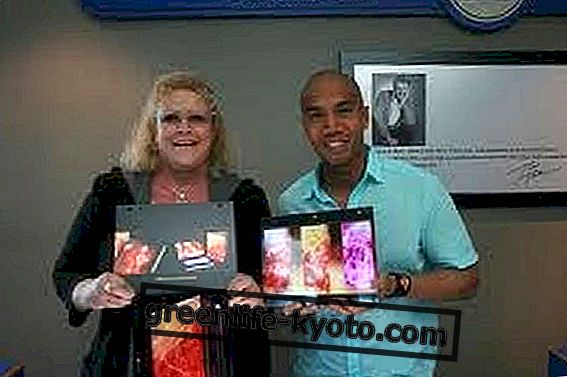
Search, find, observe with purity
In Hesse's book, Govinda, despite the years spent in research, continues to show his curiosity with his longing and unresolved desire to seek. The long search, search, at all costs, distracts from the real awareness. In a precise fragment of the text, the boatman opens the speech by emphasizing how important the ability to see is if one really wants to find it. Below, Siddartha specifies how to look for and find two different things. Then it enhances the importance of the pure state of observation, typical of children, understood as the ability to observe and see what surrounds us, not to let it escape after a quick glance, to make it your own.
Unrepeatability of existence and conscious vision
The theme is very complex, it refers to the meaning of a unique life, the ability to live in a world that may seem the same for everyone but that, in reality, man can acquire as his own; everyone, in fact, accesses reality through the experience of his own life and has the ability, indeed, the duty, to perceive in depth what surrounds him.
The challenge is the ability to fully understand - each in relation to his own self - what is part of his own cosmos. The pressure of society, of global systems has, in fact, too often led the individual to renounce a personal thought, to a single observation, in relation to the single ego and at the moment, in exchange for a pre-packaged package of defining concepts that make all individuals easily controllable and manageable.
Siddartha continues: wisdom cannot be communicated in words. The ability to see, to see real, means that a man can, in his daily intercession, run into unique encounters at every moment, exchanges of rare intensity and depth. The observation, the real seeing a flower can allow each of us to grasp that absolute and unrepeatable uniqueness, given by the beauty of a real and unrepeatable existence. How many times in everyday life, made up of races, stress, duties (real?), Do we pass in front of flowers? How often do we have the opportunity to perceive its true, substantial and unique existence? How many times do we have the chance to be moved by that exceptional and splendid representation of life?
We often go on, blinded by our frenzy, by the need to satisfy a master system that needs blind and dedicated adepts who follow the pre-packaged doctrine, deluded to find a petty security in living the sinister conformity. The ability to consciously see, if it is constantly assumed, opens up new perspectives to man, gives everyone the possibility of being the arbiter of their own existence, of taking their own original steps, in the relative existence of a single, which will be uniquely and absolutely original, unrepeatable.
All this takes us away from the divine gift of life, but if the observation is individual, original, who can teach it? Siddharta warns Govinda: all this cannot be transposed with mere words, the risk is to be misunderstood, to look like fools. Or just different and unique?
Language and purity of vision
The conversation between the two friends continues on the same theme, seen from the perspective of communication and its limits. Language is the fruit of a definitional convention, of a conceptual classification, characterized by all the limits that derive from the need to enclose original sensations and emotions in categories. The limit of this process and the harm that results from the purity of the sensation is evident. This mechanism too often in man translates from communication to thought, and, for the dominant system, it is extremely easy to cancel the original thoughts of each one, to replace them in something similar, but which has the merit (defect?) Of being easily labeled and, therefore, controlled.
Relativity, unique relativity, time
The speech continues focusing on the concept of relativity . The phenomena of life cannot be defined only as white or black, good or bad, in them multiplicity of aspects coexist. The concept of relative-absolute is expressed according to which every daily phenomenon is perceived by everyone in their relative absoluteness. All of this refers to the Taoist philosophy which advocates the concept of the acceptance of life and its infinite aspects for what they are; in accepting diversity and uniqueness, in understanding the unique and unrepeatable moment .
Consequently, Siddharta frames the theme of unique relativity, introducing the concept, already more recently expressed by Albert Einstein. The thought of the four-dimensionality of our existence. It is intuitive, in fact, that the phenomena that guide our life are placed and fully perceptible in four dimensions. It is also true that the ability to live the fourth dimension escapes man: time . Our ability in this sense is comparable to that of a shadow that tries to perceive the third dimension. In the perception of the only instant for what it is, similar to infinite others, but extremely original, Siddharta identifies the location of the same in a unique and absolute dimension, which cannot, taking into account its history and its antecedent and subsequent reflections on the existence, to be thought of as finite, but rather that it can be perceived as an essential part of the whole, present eternally .













